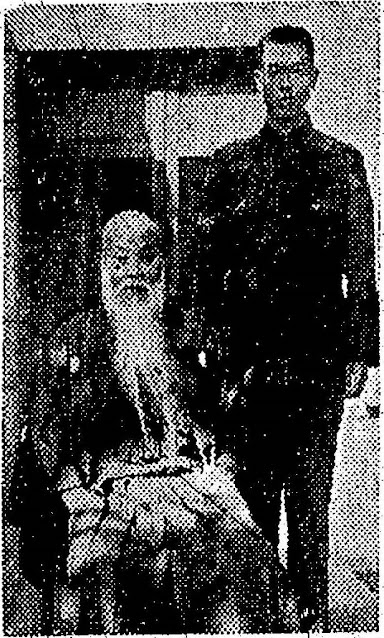(Translation)
Gyeongseong Ilbo (Keijo Nippo) March 6, 1943
The True Meaning of National Identity and the Righteous Peninsula
By Kamata Sawaichiro
The Idea of the Formation of the Greater East Asian Nation
Current World Affairs and the Reaffirmation of the Idea
Not only is there is no contradiction in the Japanese spirit and Japanese culture being the guiding principle in the construction of the New World Order, but the remarkable broadening of their universality will surely speed up progress towards their purpose.
Japan is constantly creating itself, and therefore Japan itself is constantly reforming itself and developing itself. What this fact teaches us is this: that Japan-centrism must also transform itself and develop itself along with the creation and development of Japan. In this context, we must make clear the fact that the interpretation of the spirit of Hakko Ichiu is not a narrow nationalism that is concerned only with selfish development.
Rather, it is concerned with forming a true Gemeinschaft (community) inside and outside the country. This philosophy cannot be born from an insular, island nation mentality. If we are narrow-minded and obstinate, we will not be able to realize the historical necessity of the Japanese nation's grand, high-minded, and positive mission in world history, which is to proclaim the cause of righteousness to the whole world, to turn the world into a single realm, to let all nations take their places, and to let all people rest in peace.
Let us consider the issue of the word 'kami' in Japanese. The Chinese character for 'god' (神) is normally applied to the word 'kami', but in fact the Chinese character which should actually be applied to this word should be the one for 'above' (上). That is, the word 'kami' actually refers to ancestors with whom you have a blood connection and who are 'above you', or superior to you in spirit. In other words, the first meaning is to revere your ancestors, and the second meaning is to sublimate your personality into a divine status. You are to see the divine within the human being.
Much has been told regarding human beings who have attained divine status. Look at the amazing fact that even a lowly man in a hut can die and be enshrined as a god of national protection. It is not only those who have died in wars, but also those who have acquired divinity through deeds and practices. Look at Kusunoki Masashige. Look at General Nogi. Look at General Togo. The heroic spirit, the high-minded will, and the beautiful innocence that human beings leave behind in this world like a glow of light are the most concrete examples of the sublimation of personality into the divine. Further, it is a combination of historical ideals that originated from the respect for the gods and veneration of ancestors, which form the essence of Shintoism, the true meaning of national identity. The gods are the actual source of our life. There is no absolute line of separation between the gods and human beings in the organic relationship of life. We, the Japanese people, are the ones who most honestly confirm and realize the unity of the noble gods and man.
I think this kind of phenomenon cannot be seen in any other ethnic group or nation in the world. It is said that individualism and liberalism are based on respect for human beings, but is there anything else that teaches the dignity of human beings as much as the Japanese Imperial Way, which is based on the unity of god and man? Compared to the foreign gods, who are defined metaphysically as ideal gods, abstract gods, or idol gods, this is the purest form of respect for human beings.
Through the true meaning of the Japanese national identity, let us now consider the most serious and urgent of Japan's problems: the ethnic problem.
How to unite and concentrate the many different peoples scattered over the vast area of Greater East Asia, so that they may be at ease and have a place in the world, is the greatest problem that pervades the present and the far future. It is no exaggeration to say that of the two directions of practice, one of war and one of construction, all construction should be concentrated on work with the ethnic groups.
Politics, economy, and culture will be newly generated and reorganized for each ethnic group. This is the liberation and construction of Greater East Asia. At the same time, it is a fool who does not understand the nature of today's long-term war to think that it will be realized only after the war is over. The construction has already begun as the military flag moves forward. Work with the ethnic groups is also on the march. Thus, the formation of a new Greater East Asian Nation has begun. This is the manifestation of Hakko Ichiu in Greater East Asia, which is the only national destiny in Greater East Asia.
We emphasize here anew that the most important thing in the ideology and action of the formation of the Greater East Asian nation is our governance over Korea itself. Amid changes in current world affairs, people must reaffirm that Japan's continental policies and work with the ethnic groups originated in Korea in the first place and are bearing fruit.
Source: 京城日報 1943-03-06 : 京城日報社 : Free Download, Borrow, and Streaming : Internet Archive
Why am I posting such content? Read my reasons here: https://tpjv86b.blogspot.com/2021/11/nostalgia-for-imperial-japan-and-its.html
(Transcription)
京城日報 1943年3月6日
国体の本義と道義半島
鎌田沢一郎
大東亜民族形成の理念
世界新情勢とこれが再認識
かくして日本精神、日本文化が世界新秩序建設の指導原理たらんとする上に何等の矛盾を来さないのみか、著しき普遍性の増大によってその目的の歩度を速め得るであろう。
日本は絶えず自己創造し、従って又日本そのものが絶えず自己改革し、自己発展する。この事実のわれわれに教えているものはこうである。日本主義も亦日本の生成発展とともに自己改造し、自己発展してゆかなければならぬと。茲に於いて、八紘一宇の精神についての解釈に於けるが如きもそれを自己の発展のみを、利己的に考える狭い意味の国家主義にあらざることを明かにせなければならない。
国の内外を通じて真のゲマインシャフトを形成せんとするのである。この理念は鎖国的島国的な根性からは生れないのである。もし偏狭にして固陋であれば、大義を八紘に宣揚し、坤輿を一宇たらしめ、万邦をして各々その所を得せしめ、万民をしてその堵に安んせしめるが如き、日本民族の雄大高邁な積極的意味を持つ世界史的使命の歴史的必然は産まれて来ないのである。
『神』の問題を考えてみる。日本のかみは漢字の神を一応当てはめているが、事実は『上』であると言う。即ち現実の上の方血縁的には祖先、精神的には上位を意味する。つまり一は崇祖敬神であり、一は人格の神格への昇華である。人間の内に神を見るのである。
現人神は申すも長し。賤が伏屋の匹夫と雖も死して護国の神を祀らるる驚異すべき事実をみよ。このことは決して戦争に死にたるもののみでなく、人は行為と実践によって神格を獲得出来るのである。楠木正成をみよ。乃木大将をみよ。東郷元帥をみよ。人間が光芒のようにこの世に遺してゆく雄勁な志操や、高邁な意志や、美しい純情が人格を神格に昇華せしむる最も具体的な実例であり、且つは又国体の本義たる惟神の真髄たる敬神崇祖より発生し来りたる歴史的理念との結合である。神々こそは我々の生命の実際の根源である。神と人間との間に生命的有機的関係を置いて、絶対の隔離線を設けない。尊貴なる神と人との一体を最も正直に確認し実現しているのが我々日本人である。
思うにかくの如き現象は、世界のいずれの民族、いずれの国家にも見られない。個人主義、自由主義は人間尊重にその根底を置くと唱えるが、およそ神人合一のこの日本の皇道主義ほど人間の尊厳性を教えるものが他にあろうか。外国の神がまず形而上学的に神を規定し、単に理想の神、抽象の神、或いは又偶像の神であるに比べて何という人間尊重の純一化であろう。
扨かかる日本国体の真意義を通じて吾々は茲に日本の当面せる諸問題中最も重大にして喫緊なる民族問題を考察して見よう。
広汎なる大東亜の諸地域に、散在する数多くの異民族を、如何に統合し、集中し、その堵に安んぜしめ、その處を得せしむるかということこそ現在及び遥かなる未来をも貫く最大の問題である。否一面戦争、一面建設の二つの実践の方向のうち、建設に関する限り一切が民族工作に集中さるべきものといっても過言でなかろう。
政治も経済も文化も夫々の民族を対象として茲に新しく発生し再編成される。それが即ち大東亜の解放と建設である。同時にそれは戦争の終了を俟って実現されると視るのは今日の長期戦争の本質を知らざる迂遠の徒である。建設は軍旗の進むところ既に始まっている。民族工作も又進軍しつつある。かくて新しき大東亜民族の形成が始められた。これこそ大東亜に於ける八紘一宇の顕現であり、これのみが大東亜に於ける唯一の民族運命である。
大東亜民族形成の理念と行動に於いて、最も大切なものは朝鮮統治そのものであることを茲に新しく強調する。日本の大陸政策、民族工作等はそもそも朝鮮にその端を発し、その実を結びつつあることを人々は新しき世界情勢の変化のもとに再認識せなければならぬ。







